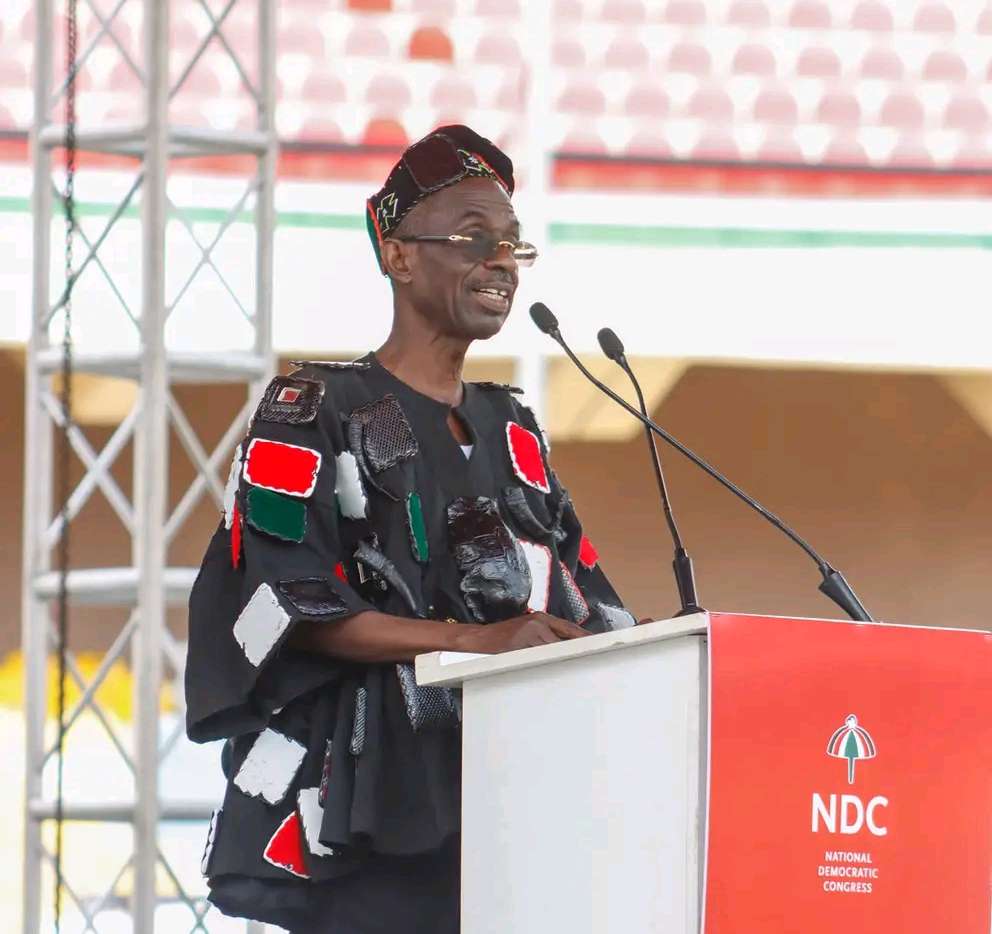Justice Clemence Honyenuga, the trial judge who has been hearing the case of the former Cocoa Board Chief Executive Dr Stephen Kwabena Opuni and businessman Seidu Agongo has ordered the Registrar of the court to refer the case to the Chief Justice for a new judge to be assigned with immediate effect.
The Supreme Court judge has been granted a six month extension by the CJ following his retirement on September 4, last year to conclude the case.
However, with a week to the expiration of that mandate from the CJ, the office of the Attorney General had asked that he referred the matter to the CJ for a reassignment because he could not conclude the case.
Justice Honyenuga, a Justice of the Supreme Court sitting as an additional High court judge, deferred his decision to today, March 1, 2023.
In court on Wednesday, March 1, Justice Honyenuga said “It is crystal clear that it is impossible for me to conclude and determine this case, in the circumstance, I will uphold the submission of the Attorney General under Section 105 of the Court Act, 1993, Act 459.
“Now, this is my ruling on the submissions by the Deputy Attorney General. I must state that it is refreshing that Attorney General who initiated the Criminal proceedings against the accused persons has submitted through the Deputy Attorney General that this case be referred to the Chief Justice due to the limited time at my disposal,” he stated.
“Indeed, due to the limited time accorded me by the Chief Justice to continue to hear this case, it is crystally clear that it is impossible for me to conclude and determine this case with DW7 in the box.
“In the circumstances I will uphold the submission of the Deputy Attorney General and hereby grant the application under Section 105 of the Court’s Act 1993 Act 459 as amended.
“It is hereby ordered that the pendency of this case be reported to the Chief Justice for his directions. Accordingly, the Registrar of this court is to carry out this order forthwith. In the circumstances I will adjourn this case to the 15th of March, 2023,” Justice Honyenuga ordered.
AG’a request
Deputy Attorney General Alfred Tuah-Yeboah on February 23, said considering the “extremely limited time” available for him to deal with the matter, he should refer the matter to the CJ for it to be reconstituted.
“Pursuant to article 144(11) of the Constitution my lord was granted a limited mandate to conclude the hearing of this matter,” the deputy AG stated.
“Today is February 23, 2023, the time left for that mandate to expire is extremely limited in the sense that the first accused person has not closed his case for the second and third persons to open theirs and call their witnesses.
“Considering the time left, it is practically impossible to conclude in the circumstance we respectfully pray that my lord refers this matter to the Chief Justice to be reconstituted,” Alfred Tuah Yeboah noted.
He said his “submission is being made in the interest of Justice and fairness. This is our humble submission.”
Defence reactions
Counsel for Dr Opuni, Lawyer Samuel Codjoe said, “we have nothing to add to what the learned Deputy AG had said.”
Nutifafa Nutsukpui, counsel for the second and third accused for his part said “Respectfully my lord, we believe that this is a very commendable recommendation or suggestion from the prosecution and my lord we will also urge you to consider it favorably in the interest of Justice.”
By court
Justice Honyenuga who has been a subject of several applications for recusal including a pending one from Seidu Agongo said he would adjourn the case to March 1 to wait for the Supreme Court reasons on Dr Opuni’s review.
“It is my view that we are here this morning to await the reasons of the Supreme Court on this matter.
“Indeed, I should be the first person…considering the numerous applications filed in this matter in this court and the Supreme Court and also in the court of appeal. I will adjourn the matter to Wednesday, March 1, 2023, so that we hear the full reasons of the Supreme Court and we get the full import of the Supreme Court.
He said “We shall abide by the decision of the Supreme Court.”






































